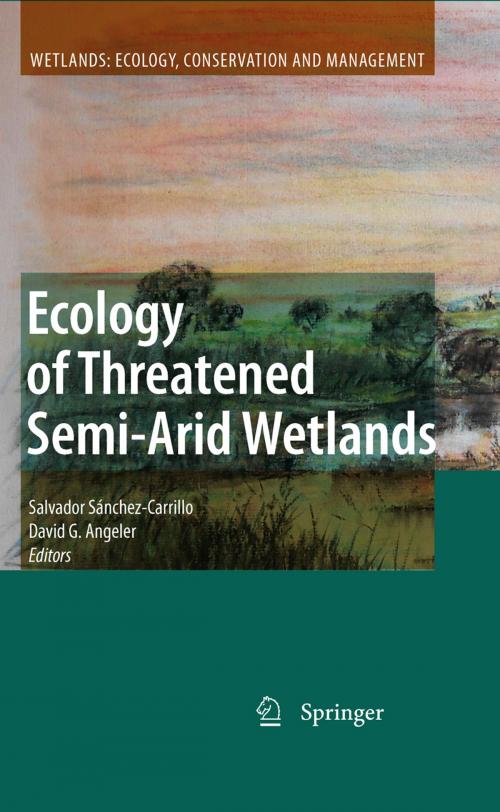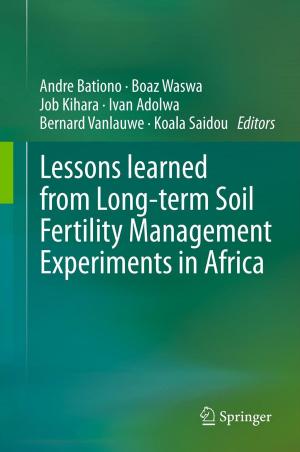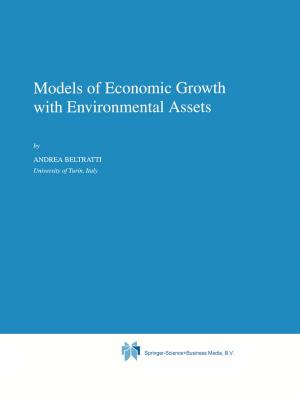Ecology of Threatened Semi-Arid Wetlands
Long-Term Research in Las Tablas de Daimiel
Nonfiction, Science & Nature, Science, Earth Sciences, Biological Sciences| Author: | ISBN: | 9789048191819 | |
| Publisher: | Springer Netherlands | Publication: | April 23, 2011 |
| Imprint: | Springer | Language: | English |
| Author: | |
| ISBN: | 9789048191819 |
| Publisher: | Springer Netherlands |
| Publication: | April 23, 2011 |
| Imprint: | Springer |
| Language: | English |
Playing a critical role in both influencing climate change and mitigating its impacts, the world’s diverse wetlands have become one of the world’s most threatened ecosystems as unsustainable land-use practices coupled with irrational use of water have already resulted in large-scale wetlands loss and degradation. To develop sound management and conservation schemes to assure wetlands sustainability in the long term requires long-term understanding of wetlands ecology. Yet until now, long-term interdisciplinary research into these systems has been limited to only a few systems from tropical or temperate climates (such as the Florida Everglades, and Czech biosphere reserve). This new book adds to the existing wetlands literature, providing a unique reference in basic and applied Mediterranean wetland ecology, based on results from long-term interdisciplinary research at the RAMSAR and UNESCO Biosphere site, of Las Tablas de Daimiel, Spain. Dating back to the early 1990s the research highlights changes in the biotic and abiotic environment in response to cumulative anthropogenic stressors, and provide guidance on applying this understand to sound management and conservation. With particular relevance to researchers dealing with semi-arid wetlands in the Mediterranean and elsewhere, as well as to resource managers, the book discusses the complexity of the interacting abiotic and biotic environment across different spatial and temporal scales and across various levels of biological hierarchy is highlighted, and reveals how management based on poor knowledge causes more damage than repair. The book will be of interest to researchers interested in freshwater ecology, hydrobotany, hydrology, geology, biogeochemistry, landscape ecology and environmental management.
Playing a critical role in both influencing climate change and mitigating its impacts, the world’s diverse wetlands have become one of the world’s most threatened ecosystems as unsustainable land-use practices coupled with irrational use of water have already resulted in large-scale wetlands loss and degradation. To develop sound management and conservation schemes to assure wetlands sustainability in the long term requires long-term understanding of wetlands ecology. Yet until now, long-term interdisciplinary research into these systems has been limited to only a few systems from tropical or temperate climates (such as the Florida Everglades, and Czech biosphere reserve). This new book adds to the existing wetlands literature, providing a unique reference in basic and applied Mediterranean wetland ecology, based on results from long-term interdisciplinary research at the RAMSAR and UNESCO Biosphere site, of Las Tablas de Daimiel, Spain. Dating back to the early 1990s the research highlights changes in the biotic and abiotic environment in response to cumulative anthropogenic stressors, and provide guidance on applying this understand to sound management and conservation. With particular relevance to researchers dealing with semi-arid wetlands in the Mediterranean and elsewhere, as well as to resource managers, the book discusses the complexity of the interacting abiotic and biotic environment across different spatial and temporal scales and across various levels of biological hierarchy is highlighted, and reveals how management based on poor knowledge causes more damage than repair. The book will be of interest to researchers interested in freshwater ecology, hydrobotany, hydrology, geology, biogeochemistry, landscape ecology and environmental management.















